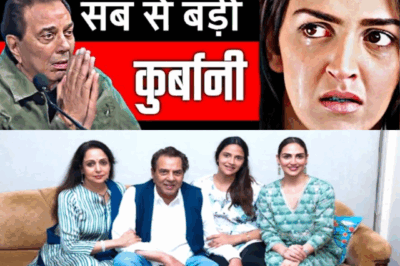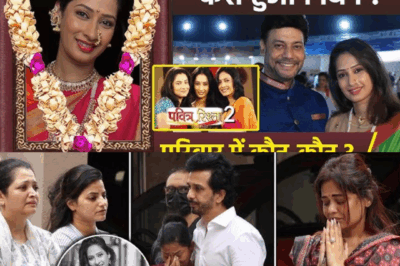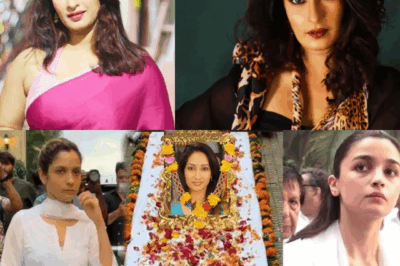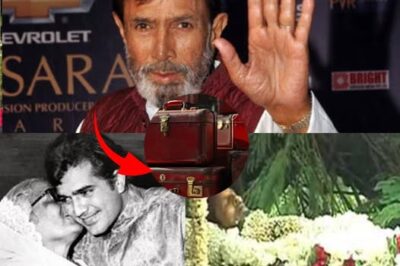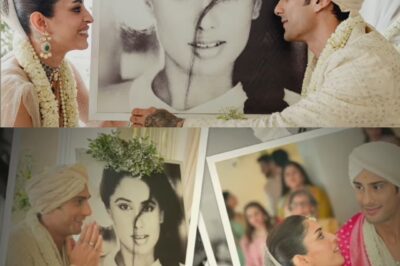It was supposed to be a moment of triumph.
The year 2000 had given Rakesh Roshan, a veteran actor-turned-director, the biggest success of his career. His film Kaho Naa… Pyaar Hai, which launched his son Hrithik Roshan, was breaking records and rewriting Bollywood history.
But behind the celebrations, danger was lurking.
The underworld had long had its eyes on Bollywood. The mafia controlled music rights, distribution, and even dictated casting choices in the 1990s. Big producers and directors were often forced to bow down to their demands.
And when someone refused, the consequences were brutal.
For Rakesh Roshan, the nightmare began with a phone call.
Gangsters demanded a share of the profits from his blockbuster film. They wanted money—lots of it. But Roshan refused.
His refusal was an act of defiance. But in Mumbai of the early 2000s, defiance came at a deadly price.
On a January afternoon in 2000, as Roshan stepped out of his office in Santacruz, the unthinkable happened.
Gunshots rang out.
Two men on motorcycles opened fire, bullets tearing into his body. The street, usually bustling with everyday chaos, froze in horror.
The director who had given the world one of the biggest hits of the year was now lying in a pool of blood.
Somehow, through sheer willpower, Rakesh Roshan managed to get into his car.
With bullets lodged in his body, his shirt soaked in blood, he drove himself to the nearest police station.
From there, he was rushed to a hospital. Doctors battled to save him as he slipped in and out of consciousness.
The fight between life and death had begun.
News spread like wildfire.
“Rakesh Roshan shot in Mumbai!” screamed television headlines.
Fans across the nation were shocked. How could a director, a man who lived behind the camera, become a target of such ruthless violence?
The answer was chilling—Bollywood’s underworld connection had finally touched one of its most respected figures.
Inside the ICU, the atmosphere was tense.
Doctors worked tirelessly. Family members prayed. Hrithik Roshan, who had just become India’s newest superstar, was shattered.
Instead of celebrating his rise, he was drowning in guilt. He believed his father had been attacked because of him—because of the film that had made him famous.
Hrithik later admitted he considered quitting films altogether.
“If my father is paying the price for my success, maybe I should leave it all,” he once confessed.
The weight of responsibility crushed him, even as he watched his father struggle for life.
Meanwhile, outside the hospital, fans gathered in huge numbers.
They lit candles, prayed, and shouted slogans of support. The entire nation seemed united in wishing for Rakesh Roshan’s recovery.
But for the man lying inside, fear had already taken root deep within his heart.
Even after surviving the attack, Rakesh Roshan could not shake off the trauma.
He remembered the assassination of Prime Minister Indira Gandhi by her own guards. And he began to fear the same fate.
Yes, security was provided to him after the incident. Armed guards surrounded him. But instead of feeling safe, he felt suffocated.
“What if they turn against me too?” he thought.
The paranoia was overwhelming.
This fear was not irrational.
The 1990s and early 2000s were among the darkest times for Bollywood. The underworld was everywhere.
Producers received extortion calls. Actors were threatened. Those who resisted faced consequences.
The murder of Gulshan Kumar, founder of T-Series, in broad daylight in 1997 was a chilling reminder that no one was untouchable.
For years, the film industry lived under a shadow of fear.
Scripts, casting, release schedules—everything could be influenced by a single call from the mafia.
And when Roshan refused to obey, he became a marked man.
But fate had other plans.
Rakesh Roshan survived. Slowly, painfully, he recovered.
The bullets had not silenced him. They had scarred him, yes—but they had also given him a new determination.
When he finally walked out of the hospital, frail but alive, it was nothing short of a miracle.
For his family, it was a second life granted. For his fans, it was proof that courage could defeat even the darkest shadows.
Hrithik, too, found new strength. Instead of quitting films, he threw himself into his career, determined to make his father proud.
And Rakesh Roshan? He continued making films, gifting Bollywood with more hits like Koi… Mil Gaya and Krrish.
The attack had changed him forever, but it had not broken him.
Still, the memories remain.
Even today, when he talks about that time, there is a shadow in his voice. A reminder of those bullets, that blood, that drive to the police station while death tried to pull him under.
It is a story that Bollywood can never forget.
Because it is not just about one man.
It is about an entire industry that lived under fear. An industry that had to fight its way out of the underworld’s grip.
And it is about resilience—the kind that refuses to let violence write the ending.
Today, Rakesh Roshan lives freely, smiles openly, and celebrates life with his family.
But the scars of that day remain etched forever.
Every success, every happy moment, carries with it the memory of survival.
And perhaps, that is the true lesson of his story:
That even when bullets rain down, even when fear surrounds you, the will to live—and to fight—can be stronger than the darkest shadows of the underworld.
News
Dharmendra Health Update: Daughter Esha Deol Seen Fulfilling Her Final Duty
The news of veteran actor Dharmendra’s fragile health has left the entire nation in shock. The man who once ruled…
Pavitra Rishta Actress Priya Marathe’s Last Rites: Family & Fans Bid Tearful Goodbye
The final goodbye to actress Priya Marathe was nothing short of heartbreaking. As the beloved Pavitra Rishta star was laid…
Pavitra Rishta Actress Priya Marathe Passes Away at 37, TV Industry in Shock
The television world woke up to a wave of sorrow when news broke that beloved actress Priya Marathe, best known…
Rajesh Khanna’s Death Revealed a Shocking Secret: 64 Locked Suitcases Unopened for Years
When Rajesh Khanna passed away on July 18, 2012, the nation wept for its first true superstar. The man who…
Why Prateik Babbar Married Without Inviting His Father — And What His Late Mother Told His Bride in a Dream
They say a mother’s love never dies. But what if it didn’t even leave? On the evening of February 14,…
Amitabh Bachchan’s Forgotten Granddaughter? Truth Behind the Hidden Heir
The story begins not in Mumbai, but in a quiet neighborhood in London. Her name is Rhea—just Rhea. No last…
End of content
No more pages to load

